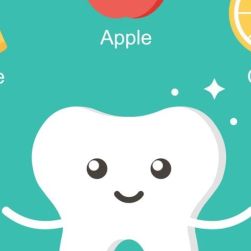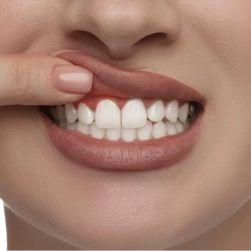Are There Any Specific Foods That Can Help Prevent Gum Disease?
Gum disease, also known as periodontal disease, is a common oral health problem that can lead to serious dental issues if left untreated. Characterized by inflammation of the gums, it can progress to affect the bone that supports your teeth. In the United States, millions of adults are affected by some form of gum disease, making it a crucial concern for oral health. One effective way to promote healthy gums and potentially prevent gum disease is by paying close attention to your diet. Certain foods can enhance oral health, strengthen gum tissue, and reduce the risk of gum disease. In this article, we will explore specific dietary choices that can contribute to healthier gums and overall better oral health.
The Role of Calcium-Rich Foods in Gum Health
Calcium is an essential mineral for maintaining strong bones and teeth. It plays a vital role in maintaining the structural integrity of the jawbone that supports your teeth and gums. Consuming foods high in calcium can aid in preventing gum disease by keeping the jawbone healthy. Dairy products such as milk, cheese, and yogurt are excellent sources of calcium. Additionally, certain plant-based foods like kale, broccoli, and almonds can provide the necessary calcium boost for those who are lactose intolerant or prefer vegan options. According to the National Institutes of Health, adults should aim for 1,000 to 1,200 milligrams of calcium per day to support dental and bone health.
Vitamin C: Essential for Gum Tissue Repair
Vitamin C is renowned for its role in immune function and tissue repair, making it a critical nutrient for maintaining gum health. This vitamin is essential for the production of collagen, a protein that provides structure to your gum tissue. A deficiency in vitamin C can lead to weakened gums, increasing the risk of periodontal disease. Citrus fruits like oranges and grapefruits are rich in vitamin C, as are strawberries, kiwi, and bell peppers. The American Dental Association suggests incorporating these vitamin C-rich foods into your daily diet to support gum repair and reduce bleeding, swelling, and redness associated with gum disease.
Omega-3 Fatty Acids: Inflammation Fighters
Omega-3 fatty acids are well-known for their anti-inflammatory properties, which can be particularly beneficial in the prevention of gum disease. Inflammation is a key component of gum disease progression, and reducing inflammation can help protect your gum tissue. Foods rich in omega-3s include fatty fish such as salmon, mackerel, and sardines. For those who prefer plant-based options, flaxseeds, chia seeds, and walnuts are great sources of omega-3s. Research published in the Journal of the American Dietetic Association indicates that a diet high in omega-3 fatty acids can help reduce the risk of developing gum disease.
The Impact of Antioxidant-Rich Foods on Oral Health
Antioxidants help neutralize free radicals in the body, which can damage gum tissue and lead to gum disease. Consuming a diet rich in antioxidants can protect your gums from these harmful particles. Berries, such as blueberries and cranberries, are packed with antioxidants and can be a delicious addition to your diet. Additionally, green tea is known for its high antioxidant content and has been associated with improved oral health. A study from the Journal of Periodontology found that individuals who consumed green tea regularly exhibited better periodontal health compared to those who did not. By incorporating these antioxidant-rich foods and beverages into your diet, you can provide added protection for your gums.
The Significance of a Balanced Diet for Gum Health
While focusing on specific nutrients is important, maintaining a balanced diet is equally crucial for preventing gum disease. A diet that includes a variety of nutrient-dense foods not only supports gum health but also promotes overall well-being. Whole grains, lean proteins, fruits, and vegetables should all be part of your daily meals. Limiting the intake of sugary and processed foods is equally important, as these can contribute to plaque buildup and increase the risk of gum disease. Regularly updating your diet to include these healthy choices can make a significant difference in maintaining healthy gums and teeth.
Conclusion: Taking Action to Support Gum Health
In summary, the foods you consume can play a substantial role in preventing gum disease and maintaining good oral health. By incorporating calcium-rich foods, vitamin C, omega-3 fatty acids, antioxidants, and maintaining a balanced diet, you can support your gum tissue and reduce the risk of periodontal problems. We at Dentistry Toothtruth encourage you to make these dietary changes for healthier gums. Remember, a healthy diet is complemented by good oral hygiene practices such as regular brushing, flossing, and dental check-ups. Taking these actions can lead to a healthier smile and improved overall health.






